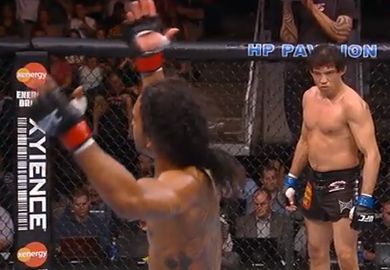Does the UFC’s Ranking System Make Sense? (Part 1)

When it comes to pro sports, there has always existed a system to decide who is the best. In leagues such as the NFL and the NHL, there are rankings within the conferences that decide who gets to enter the playoffs. When you move on to collegiate sports like football and basketball, one external party is held in the highest esteem in getting to decide what order the schools should be ranked, and that’s The Associated Press.
The Associated Press (The AP) has a wealthy history when it comes to college football polls. Since bowl games were such a prevalent part of each individual college football conference and their schools, the NCAA never held a championship game to decide who was the “best” team in college football. The AP has provided rankings consistently since 1936 and has aided those who determine which schools play in which bowl games, helping them narrow it down to the BCS National Championship Game. (This process will change in 2014 when the 4-team playoff format debuts.)
In February 2013, the Ultimate Fighting Championship decided it was time for them to introduce their own ranking system. In a press release on the matter, UFC President Dana White stated, “UFC Fighter Rankings are a great tool for new and existing fans alike to learn and better keep up with the fast pace of the UFC. We always look for opportunities to engage fans and media, allowing them to connect and voice their opinions, and this is just one more way of doing that.”
Mixed martial arts rankings had already existed on independent sites for years before UFC implemented their own. Like Dana White had mentioned, it was a fun way for new fans to see who they should keep their eyes on in a certain weight-class and a fun way for diehard fans to argue who the best pound for pound fighter was in the world.
With the historical influence standings have had on professional sports leagues, it can be assumed that the rank in front of a team’s name will have some role of importance in their future regarding the league championship. Watching the UFC acknowledge fighter rankings without factoring them into future fights makes them look undedicated to a system that fans think exists.
Join me next week as we address specific issues as to why UFC should abolish their system. Having phantom rank changes (#3 Machida and #4 Teixeira swapping places last week even though neither of them fought), ranked fighter releases (Jon Fitch being released despite being ranked #10) and matches that make no sense (#1 Fighter X vs. NR Fighter Y) causes more confusion for fans than it contributes solutions to the promotions future plans.
This article appeared first on BJPENN.COM
Topics:
MMA News








